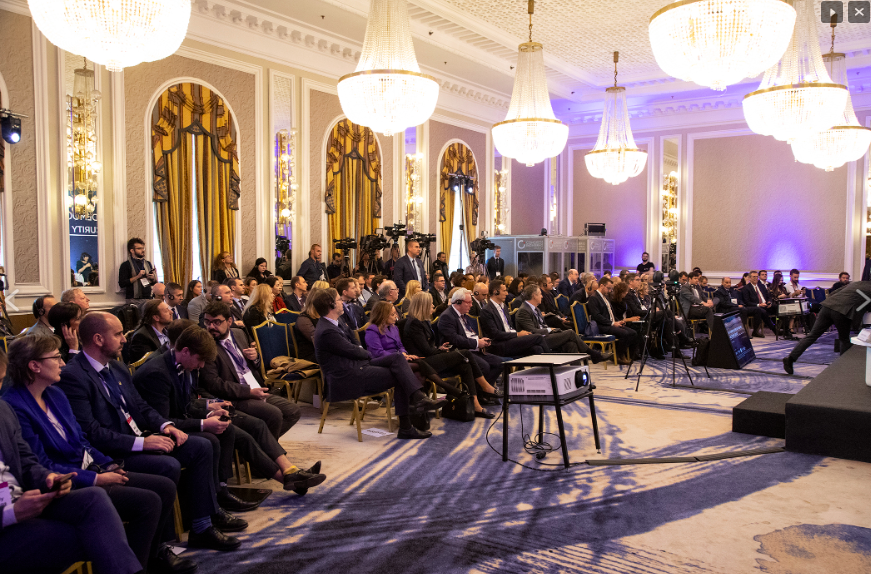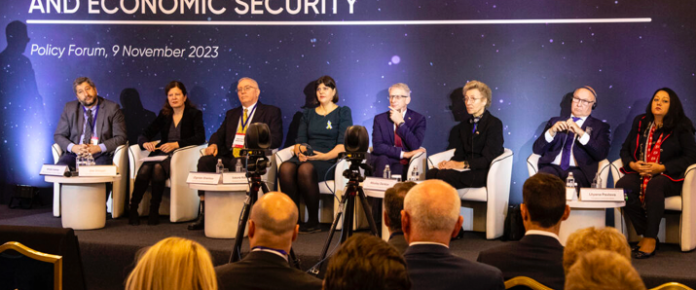The inability to effectively punish high-level corruption, as well as the challenging task of dismantling intricate networks of state capture, have both proven to be major setbacks for many member states and candidate countries. These issues also represent critical vulnerabilities in the face of foreign malign influence and economic coercion.
To discuss efforts for sustainable reform, the Center for the Study of Democracy hosted the international policy forum “Anti-Corruption, Democratic Resilience and Economic Security” in Sofia on 9 November 2023. Ognian Shentov, Chairman of CSD, and Siri Beate Barry, Ambassador of Norway, greeted the participants at the forum and stressed the necessity for putting existing policy engagements into practice. Nikolay Denkov, Prime Minister of the Republic of Bulgaria and Laura Kövesi, European Chief Prosecutor underlined that the lack of strong political leaders, capacity and procedures are hampering the effort to stop illicit financial flows, as well as the process of freezing and seizing assets belonging to actors sanctioned for corruption, illegal enrichment, money laundering, and organized crime. They emphasized that the solution should be sought not only in fair and effective justice but also through awareness and cultural change.
CSD presented its annual Good Governance report, Bridges to Nowhere: State Capture and Corruption Risks in Fiscal Transfers and Public Procurement at the Local Level in Southeast Europe as well as its latest policy brief with recommendations, The State of Capture: The Risks to Distributive Politics in Southeast Europe. Both documents outline how shadow networks of clientelism compromise the integrity of public finances in Southeast Europe and hinder the capacity of the region to cope with a number of converging domestic and international challenges.
The panellists recommended the systematic and continuous use of corruption risk assessment tools to identify and prevent the most prevalent and damaging corruption and conflict of interest schemes at institutional, sector and local levels. It is also necessary to harmonize the definitions of all corruption offenses, increase sanctions on natural and legal persons, develop e-Governance, and provide better investigative tools. A dedicated panel at the forum looked at the urgent need for Europe to beef up its economic security capacity, noting in particular the dangerous loopholes in the current sanctions regime on Russian oil carved out through special derogations. In conclusion, the participants encouraged lawmakers and law enforcement to work jointly with the civil society, academia, business and media.
More can be read here.
Project Implementing shared anti-corruption and good governance solutions in Southeast Europe: innovative practices and public-private partnerships (R2G4P).



